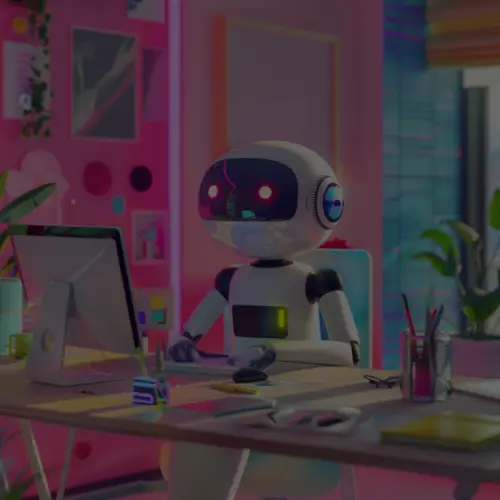05 Aug Truth, Justice, and Twitter: Social Media in the Comic Book Industry
I love comics. As a kid, I was the one running around in the Superman PJs pretending I could fly and flipping through the pages imagining what it would be like to be one of my favorite heroes. Fast forward 20 years and I’m still reading and collecting comic books and graphic novels (and I may or may not still have the costume).
That said, I’ve started to notice a recent trend. Aside from the powers and the action, I’ve begun to see social media actually written into the plots of comic books. It also has a big presence on the marketing side of the comic industry where writers, artists, and publishers all flock to social networks to promote and share their material to thousands of fans and followers.
To write a post about how social media has impacted the comics industry (from marketing to the heroes themselves), I wanted some help from an expert in the industry. I reached out to a few writers through Twitter in hopes of snagging an interview on the subject and the comic book gods smiled upon me. I got a response from Dan Jurgens, writer and genius behind one of the most epic plots in comic book history: The Death of Superman. Jurgens was kind enough to listen to me ramble about my love for comics while answering several questions on the subject of social media in the industry.

Social Media in Comics: Then vs Now
Remember when comic books had an editorial section in the back? You’d get to the end of your story each month and see a handful of questions and commentary from the lucky fans that were selected for print. Jurgens said these letters were “the social media of the time in that fans began communicating that way, and [they] would recognize each other’s names from the letters columns at conventions.”
Jurgens even had a few letters published back in the day, including one in a 1974 issue of Superboy. These pages were great for the few fans that got their letters printed, but much of the crowd was left out. And even the ones who were selected had to go through the oh-so-lengthy process of writing the letter and sending it off through the mail (such an archaic process).
Fast forward to the age of social media and fans have direct access to writers and publishers for the first time. Letters come in the form of Facebook posts and tweets, which have a much better chance of being seen by their intended recipients.
“Whether it comes through Facebook, Twitter, or my website, fans certainly recognize that aspect now, where they can reach out and contact creators,” said Jurgens. “If I was 15 years old again, and had I been able to follow social media somehow and have that sort of contact with my favorite writers and artists of those times, I would’ve loved it.”

Besides helping out with fan/creator interactions, social media has greatly boosted the marketing and promotions side of the comic book industry. Before social networks came into the picture, comic books had to rely on print ads scattered throughout the issue to preview upcoming stories and character changes. Now we’re graced with links to previews of upcoming issues (like this preview of Superman #10), press releases of future storylines, and events that encourage fans to purchase a book or try a new series.
Jurgens is a big fan of teasing content and reminding followers of when his latest issue is released. He’s also one of many in the industry that use social media to promote other people’s work. Cross-promotion between writers and their brands is common in the comic book industry’s social media community. It encourages sales and builds relationships that followers can see and interact with. It’s a great way for fans to discover new material based on what they already like, and it drives awareness through shares and retweets. But social media’s impact isn’t restricted to the online world. It’s also had an effect on the storytelling of comics as well.
The Plot Thickens
One of the goals of the narrative in comics is to take larger-than-life characters and ground them in reality. The stories are written this way so that we, as readers, accept the idea of a guy with metal claws or a green power ring. So will social media start to affect the plots?
“I think it will to a certain degree, and I think it has to because of what we see in the world around us,” Jurgens said. “If a celebrity steps outside a restaurant one night in L.A., there are photos up of it on TMZ ten minutes later.”

Jurgens went on to call the superheroes we follow the celebrities of the comic book world. “I think that, as part of the story, people have to be taking pictures of Superman flying through the city or Spider-Man swinging through the city. Invariably, there comes a point where some of that has to be part of the story itself.”
Social media already has become a part of the story, and we could talk all day about how it could affect the personal lives and secret identities of the characters. Imagine trying to live two lives when the whole world is armed with camera-phones and Twitter in their pockets. For comics to stay grounded in reality, social media will have to continue to be written into the stories.
Good vs. Evil
The biggest theme present in comics is the idea of good vs. evil, and social media fits perfectly into that age-old struggle. So what are the ups and downs of social media in the comic book industry?
Jurgens commented on the benefits readers experience from the immediacy of information: “If there”s a creative change, if you’re announcing a special storyline, the immediacy of information and the ability for that information to get through to most of the reader base is truly amazing.”
“The bad is probably when information comes out that way that is wrong.” Jurgens noted that he has seen people run with false rumors that have affected people and characters in the industry. “It doesn’t take long for [rumors] to spread, and [they’re] out there, and it’s pretty hard to put that toothpaste back in the tube.”
The Future of Social Media in Comics
Thanks to social media, fans have direct access to the creators and publishers for the first time. It’s being written into the stories, and even the characters have mock Twitter accounts (check out “The 10 Coolest Superhero Twitter Accounts“). So what’s next?
Personally, I think the publishers could benefit greatly by establishing official Twitter accounts for their superheroes. It would add to the mix of transmedia storytelling that the comic book industry thrives on, and fans would be able to have conversations with their favorite characters. Imagine following Wolverine or the Flash between issues and getting their thoughts and actions published to your Twitter feed. Publishers could tweet how the characters “feel” about certain plot developments, and it would be another marketing angle to help spread the word of new stories and events.

Jurgens said he could see this happening as social media continues to grow in the comic book industry, but that he hasn’t heard of anything like that being developed yet. As for building on top of what’s already out there, he said “I don’t know that there are any ground rules yet. It keeps on changing right beneath us.”
To listen to more of my conversation with Dan Jurgens, including his opinion of how social media would have affected the release of The Death of Superman if it had been released in 2012 instead of 1992, click on the link below:
Interview with writer Dan Jurgens about Social Media in Comics
Are you a comic book fan? How do you think social media will affect comics in the future? Let us know in the comments below.






